
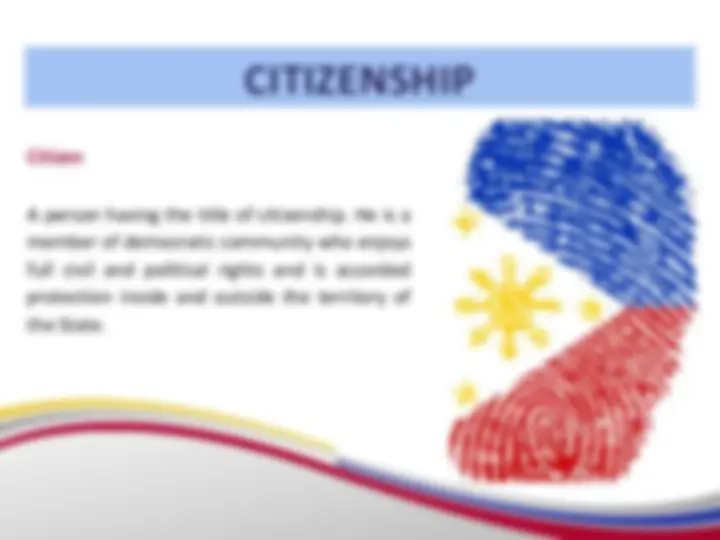
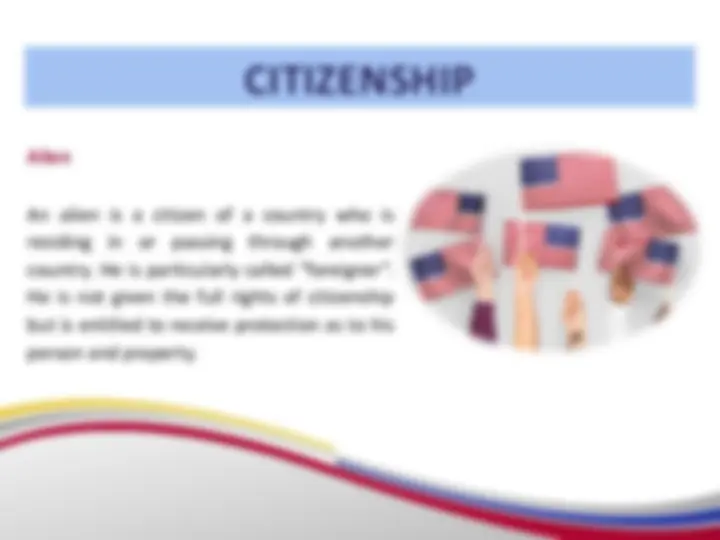
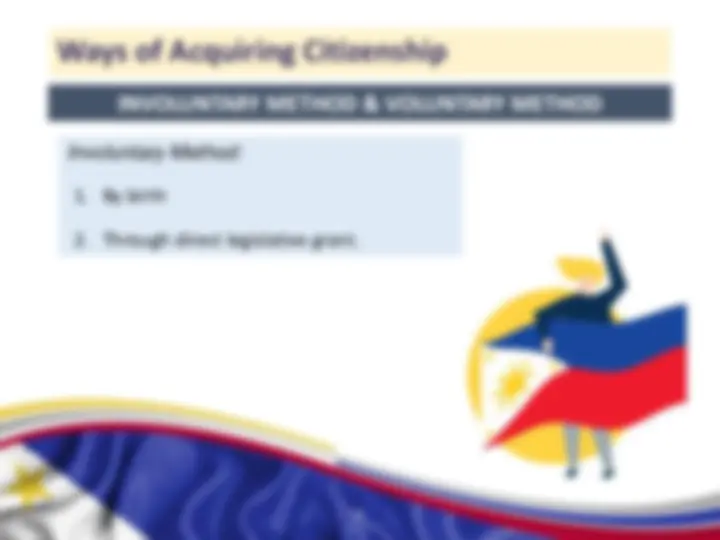
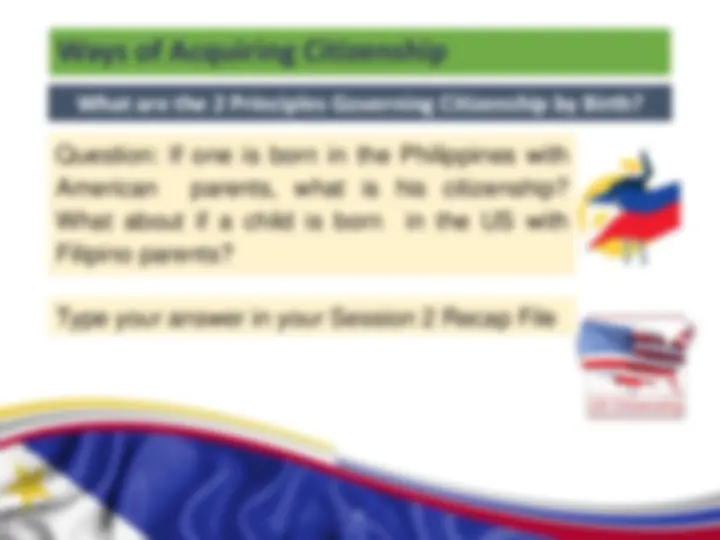
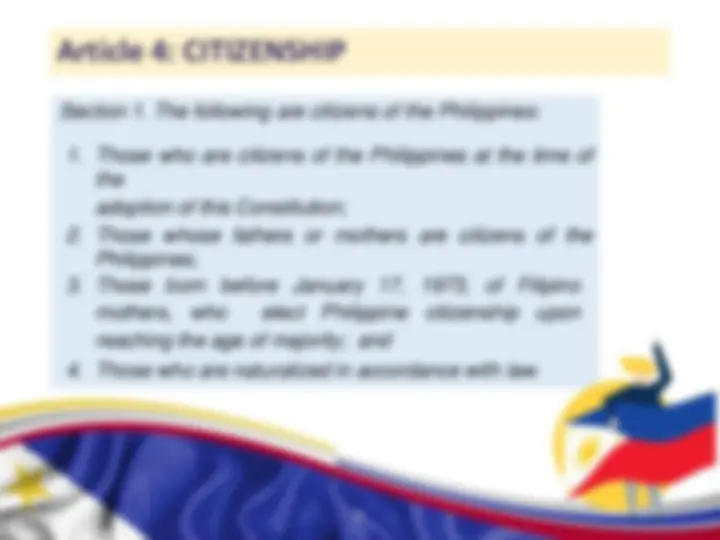
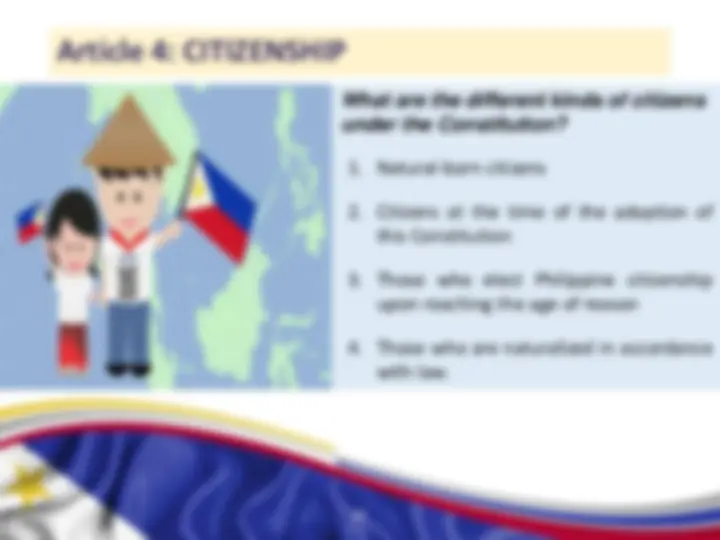
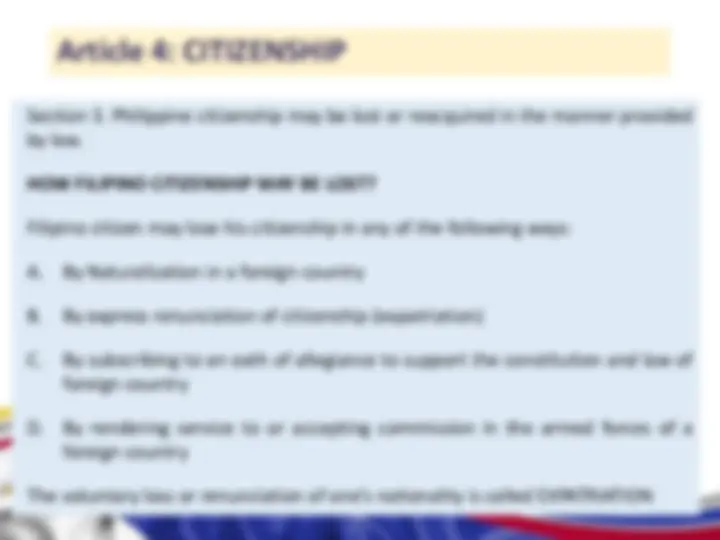
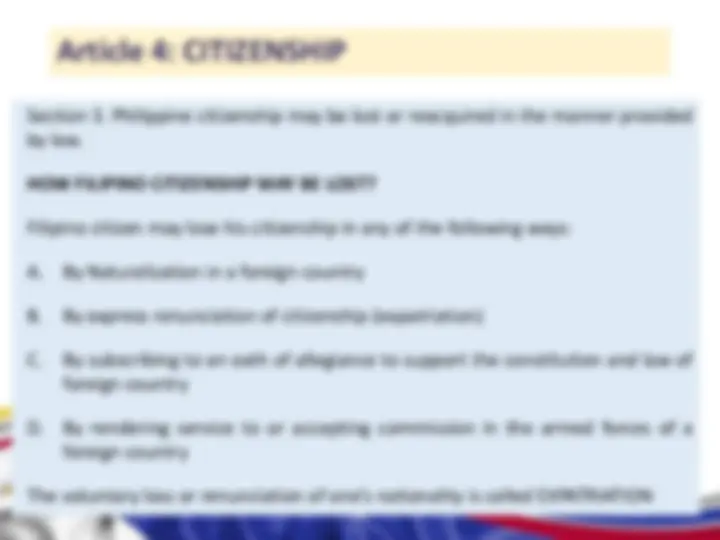
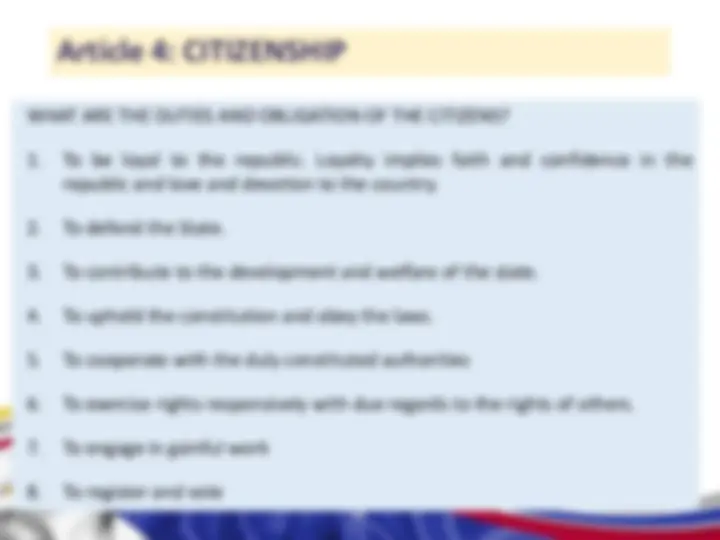



Study with the several resources on Docsity

Earn points by helping other students or get them with a premium plan


Prepare for your exams
Study with the several resources on Docsity

Earn points to download
Earn points by helping other students or get them with a premium plan
Community
Ask the community for help and clear up your study doubts
Discover the best universities in your country according to Docsity users
Free resources
Download our free guides on studying techniques, anxiety management strategies, and thesis advice from Docsity tutors
Wk 3 Lecture 3 - Citizenship - Provisions in the Constitution Relevant to Tourism and Hospitality.pdf
Typology: Lab Reports
1 / 18

This page cannot be seen from the preview
Don't miss anything!











LATH 311 – SESSION 2
Working in the hospitality industry provides a person with a unique opportunity to meet people of all sorts - regardless of race and creed. However, a bit knowledge about citizenship is of great help. What is Citizenship?
Alien An alien is a citizen of a country who is residing in or passing through another country. He is particularly called “foreigner”. He is not given the full rights of citizenship but is entitled to receive protection as to his person and property.
Involuntary Method:
Jus Sanguinis Citizenship by virtue of blood relationship. The children follow the citizenship of the parents. This prevails in the Philippines. Jus Soli Citizenship by virtue of the place of birth. A person becomes a citizen of the state where he is born irrespective of the citizenship of the parents. This principle prevails in the United States.
What are the different kinds of citizens under the Constitution?
Who are considered as natural-born citizens? Article 4 , Section 2 provides that Natural-born citizens are those who are citizens of the Philippines from birth without having to perform any act to acquire or perfect their Philippine citizenship.
Section 3. Philippine citizenship may be lost or reacquired in the manner provided by law. HOW FILIPINO CITIZENSHIP MAY BE LOST? Filipino citizen may lose his citizenship in any of the following ways: A. By Naturalization in a foreign country B. By express renunciation of citizenship (expatriation) C. By subscribing to an oath of allegiance to support the constitution and law of foreign country D. By rendering service to or accepting commission in the armed forces of a foreign country The voluntary loss or renunciation of one’s nationality is called EXPATRIATION
Section 3. Philippine citizenship may be lost or reacquired in the manner provided by law. HOW FILIPINO CITIZENSHIP MAY BE LOST? Filipino citizen may lose his citizenship in any of the following ways: A. By Naturalization in a foreign country B. By express renunciation of citizenship (expatriation) C. By subscribing to an oath of allegiance to support the constitution and law of foreign country D. By rendering service to or accepting commission in the armed forces of a foreign country The voluntary loss or renunciation of one’s nationality is called EXPATRIATION
EXERCISES: Type your answers in the Session 2 Recap File. Answers will be discussed in the synchronous session Determine the citizenship of the child with the following conditions:
As a future tourism & hospitality professionals, why do you need to study Article 4 of the Philippine Constitution?